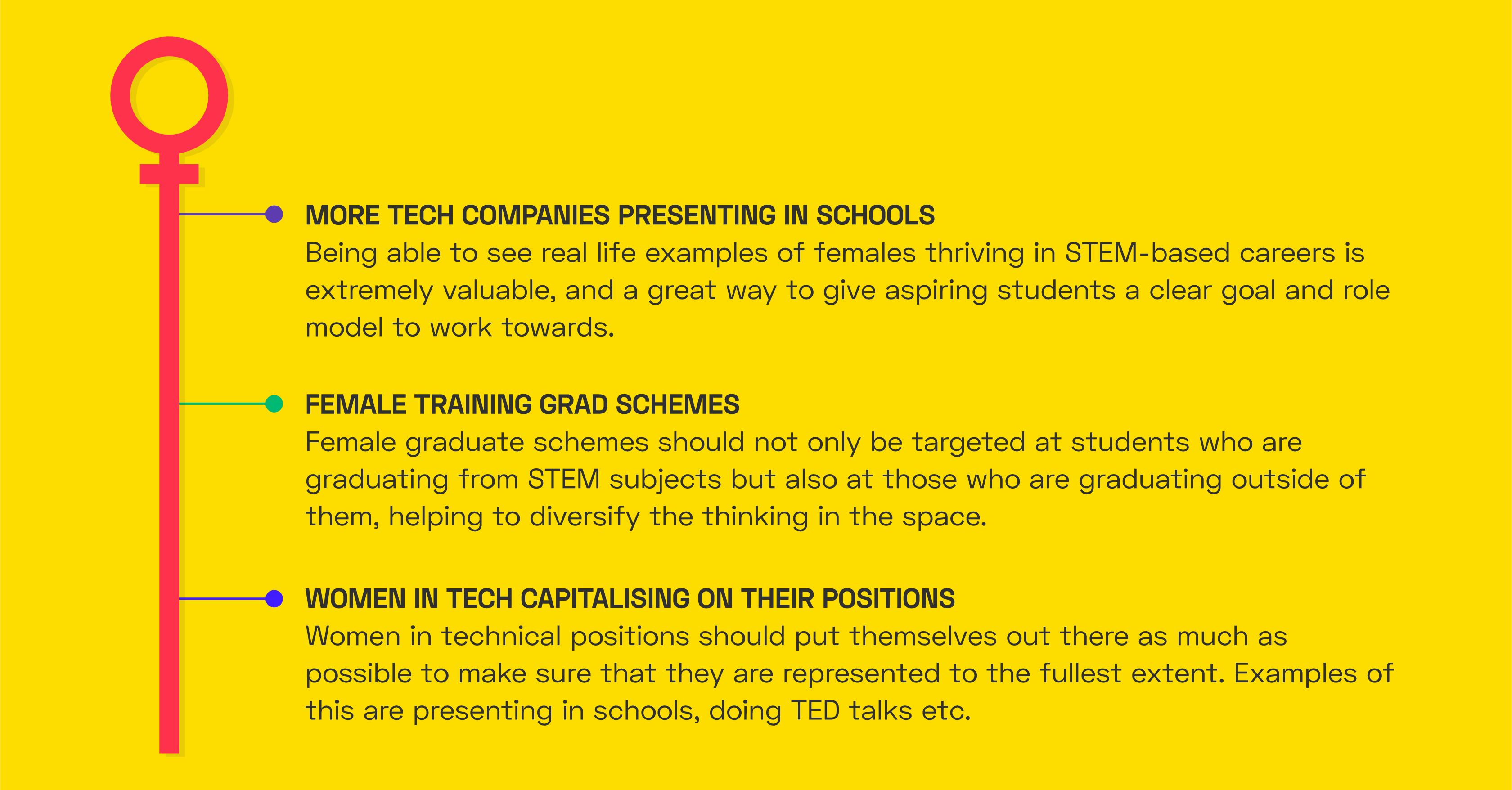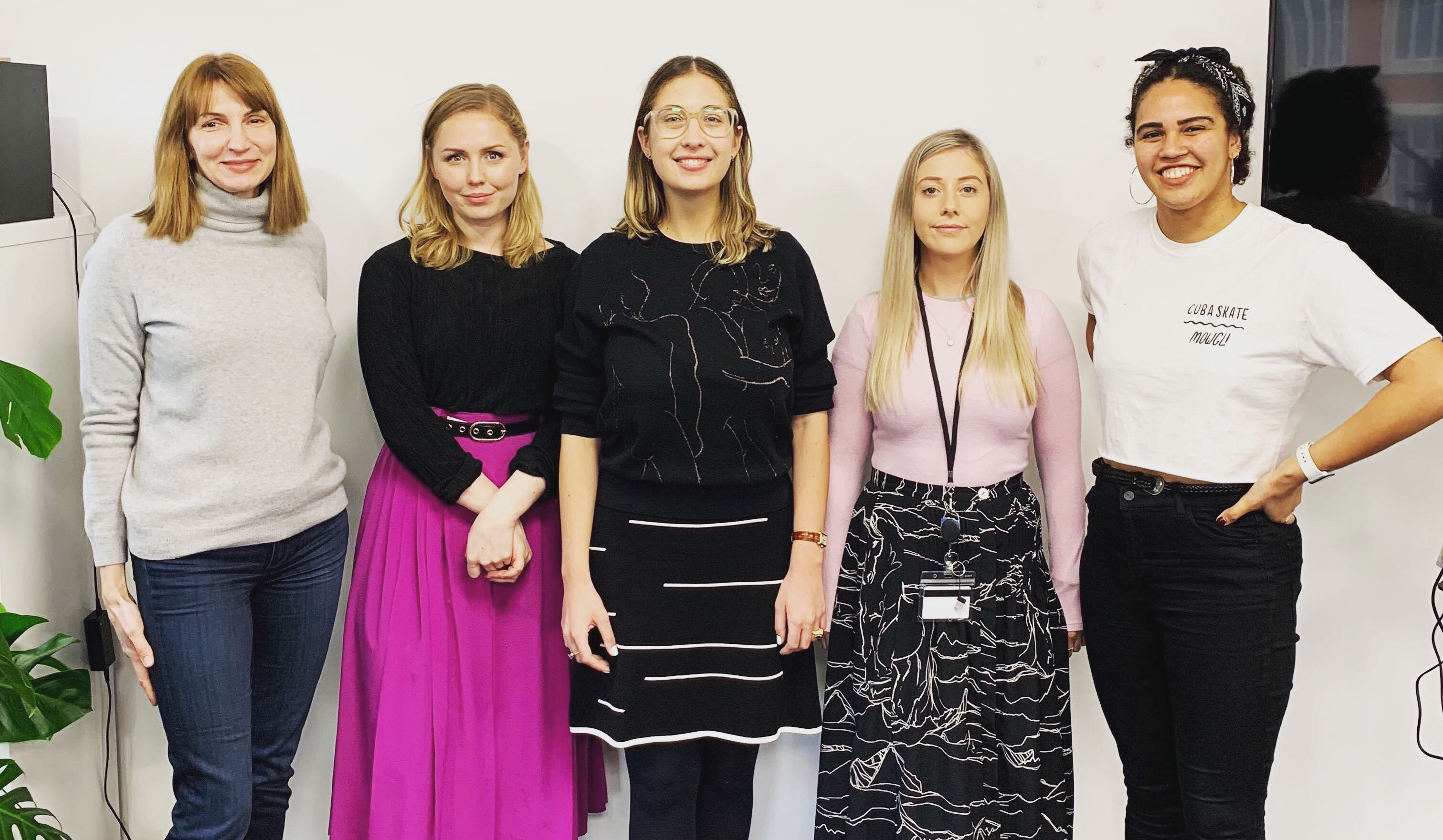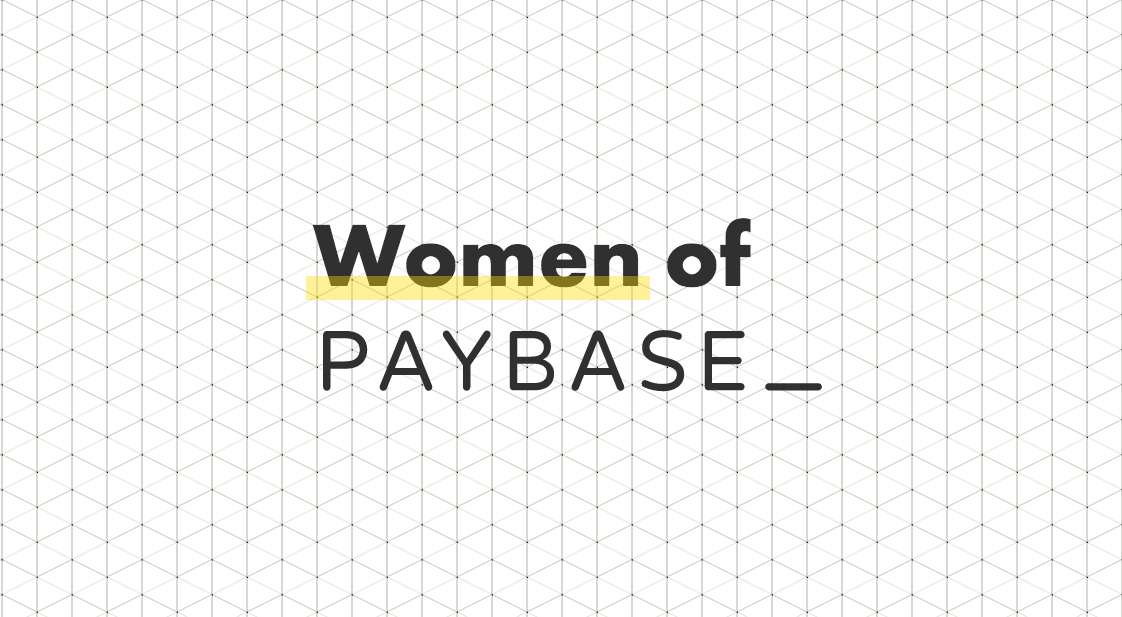#EachForEqual
Mar 6, 2020, by Gemma Doswell

International Women’s Day
Women in Tech
Diversity
On Sunday 8th March, we’ll be celebrating International Women’s Day, a day that celebrates women’s (aplenty) achievements, raises awareness about gender inequality and encourages us to take action against bias. So of course, at Paybase, it’s something that we firmly stand behind.
The theme this year is #EachforEqual - because an equal world is an enabled world. In the context of tech, this is especially important. PWC found in 2017 that just 3% of women said that a career in technology was their first choice and that 78% of students were unable to name a famous woman working in technology. In 2018, Tech Nation found that just 22% of tech directors were women and an even lower 19% of tech workers were female despite the statistic of female workers in the UK being 49%.
But "we can actively choose to challenge stereotypes, fight bias, broaden perceptions, improve situations and celebrate women's achievements." For those of us working in tech, in particular those of us in leadership roles, we can endeavour to create a culture of diversity and to champion equality within the workspaces that we inhabit.
What can be done?
In 2018, the portion of female graduates in STEM subjects (Science, Technology, Engineering and Maths) was just 9%. A UCAS study furthermore found that specifically in computer science, engineering and technology, the fields "show the largest gender imbalances from current students, to graduates and the workforce figures". The figures decrease as the candidates progress through each stage, demonstrating that retention is also a problem in the STEM space.
To address this, three steps that can be taken are:

The women of Paybase
At Paybase, we’re proud to maintain a good gender balance in our senior management team, confronting head-on the traditional lack of women in leadership roles in the FinTech space. We asked some of our team about why a gender balance at work was important to them and how they thought it could impact overall experience.
We spoke to our Product Designer Ella who works closely with the tech team. She said, "I think if you are the only woman in a tech team, the amount of emotional labour expected of you can be high. The men (I think subconsciously) can try and seek more emotional support/guidance from you which makes establishing boundaries difficult." She continued, "I also feel the level of scrutiny of your work can be higher because you stand out more as a woman in that environment. Even within the best intended teams, it’s hard to remove our own bias."
"The personality traits of men and women are vastly different," Head of Growth, Jessy told us. "And any organisation benefits from having a bit of both to balance their culture. I’ve generally found the following characteristics to be common in the female colleagues that I’ve worked with:
a stronger tendency to pay attention to detail
a strong ability to multitask
high levels of empathy"
For me (Gemma, Content Manager), I’ve found that a gender mix works better than a single-gendered organisation. I’ve worked with all women and with mostly male-led businesses and both felt like they lacked balance. But a gender balance isn’t the only ingredient to diversity. Ethnicity, sexuality, socio-economics, experience, age etc. are as important - and I really believe that they need to be a conscious concern of the business to be tackled effectively. It is not enough to hope for diversity to occur and to applaud its coincidence; maintaining (or creating) diversity should be a consideration at the forefront of the recruitment process.
Our Office Manager, Lola, also believes that tackling diversity is best executed with a formal function. "I think that companies should work towards having a full diversity function. Sheree Atcheson, who works as the Head of Diversity and Inclusion for Monzo, is a great role model for women in tech. She emphasises the importance of understanding all different types of diversity and making them a priority, not only diversity of gender."
Our Head of Compliance Rachel, former Head of Compliance in Banking Services at Starling Bank, agreed. "Gender equality/diversity brings with it greater diversity of thought, which is so important to a) increase relevance to your customers, and b) to provide better problem solving through diversity of experiences. We therefore need to make sure that we think not only about gender, but also about race, age, affluence, educational background, etc. Having visible senior women is also crucial to inspiring future female leaders to enter a career in FinTech and to stay in the sector."
We then spoke to Anna, our CEO. “I’ve been lucky in my career so far that the roles that led me to Paybase were all unusually female-first (given the traditionally male-led industries). Working in these female-empowered environments has been a significant advantage, especially in terms of dispelling myths and misconceptions about women working in certain positions in male-led industries. Businesses significantly benefit from varied, healthy dialogue; a gender-balanced workforce at all levels of seniority is crucial to this.”
Finally, we spoke with Ana, one of our tech team. “I couldn’t agree more with every single one of the points my colleagues made. On being an outnumbered woman in the Tech Team, as Ella pointed out, it can be difficult from a work scrutiny and emotional labour point of view as well as in terms of varying styles of communication.” She continued, “Of course, I understand that this because we all grew up in different societies - and each with meticulously designed boxes of what we should and shouldn’t be - but it’s really important that we feel safe to just speak up. At Paybase I feel I am empowered enough to do just that - to speak up and stand by my views without fear of consequences and hopefully empower others regardless of gender, ethnicity or sexuality to do the same”
Say hello to our team



